|
May 29 at 7pm - Join LWV UMRR as we host Riverlorian Steven Marking!
*A Riverlorian is defined as follows: "One who studies rivers and shares all aspects of navigation, nature, history, legends & lore with anyone who will listen. This could expand into river related topics that interest the Riverlorian and possibly even the audience."
Post by Gretchen Sabel, Communications Director LWV UMRR was incorporated in 2015, after being affirmed by our membership at our first Annual Meeting on October 24 in Dubuque, and being affirmed by the LWV US Board on April 1, 2016. In the early days, we traveled across the region, getting to know our watersheds and member Leagues. Like everyone else, we turned to Zoom and were virtual for years, finding that this is an effective way to us to work in our far-flung watershed. In early June, 2023, the LWV UMRR Board met in La Crosse for our first in-person retreat since 2020. Our current chair, Mary Ellen Miller (home League LWV Metro Des Moines, IA) noted that we've matured as an organization in these seven years. Some elements are working well, but others need some adjustment. Now we will be re-evaluating our structure, and seeking ways to bring more people into our Board and committees.
monthly newsletter. The Bylaws Committee will examine the structure of the Board and recommend changes to bring in more Board members in meaningful roles. The Action Committee is also seeking new members as we expand our work and advocacy. We will share more on these new committees in upcoming blog posts. The Nominations Committee is also seeking new members. Take a close look at the picture above. Do you recognize anyone well-known to all of us Leaguer's? Yes, we had several special guests at our Board Retreat. One was LWV US President Deb Turner. We were honored to be able to ask her our questions about how an ILO like LWV UMRR works with LWV US. She observed that there is no book written that outlines how this relationship is supposed to go so we are writing it as we go. We committed to working together to develop strong ties and effective working relationships. LWV US Midwest Regional Organizer, Jessica Rohloff, also attended - she will be on hand in this role as we move ahead.
All in all, the retreat was a three-day event filled with camaraderie and exploration. It was amazing to be able to meet in person after years of Zooming, and we not only worked but got to know each other informally. Here are some pictures from the event!
The 2023 LWV Minnesota Convention took place in New Ulm on June 2-3. New Ulm is a thriving Minnesota city, located at the confluence of the Minnesota River and the Cottonwood River, probably best known as the home of the second-oldest continuously operating brewery in the US, Schell's Brewery. We met and celebrated the Dakota Native roots of the community, the natural setting along the river, and the German culture that overlays this area today. 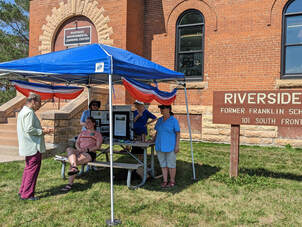 Friday afternoon, Part 1 took place at the Riverside Environmental Learning Center along the Minnesota River in New Ulm. This historic building was a fitting setting - outdoors we welcomed visitors with a display on LWV UMRR, staffed by volunteers from LWV New Ulm. Inside, visitors learned about the Minnesota River's animals and water quality, and were able to 'take action' and write to their members of Congress, urging a strong conservation article in the US Farm Bill now being considered. Packets of pollinator seeds were provided to underscore what's at stake in the Farm Bill. Another attraction at this event was a book event for "For Love of a River: The Minnesota", where LWV lifetime member and state leader Geri Nelson distributed copies of the book to the visitors. Her husband Darby was an accomplished author, educator and legislator. This book was his last project before his death in January, 2022. Geri was on hand to chat with visitors about the book and the process of writing it. Saturday, the displays were set up in the LWV MN Convention hall. Gretchen Sabel, LWV UMRR Communication Director, spoke about LWV UMRR and urged Leagues in Minnesota to join if they haven't already. Geri Nelson gave a presentation on the book, and then LWV New Ulm Vice-President Megan Benage gave a rousing call to action for people to understand and protect the river.
It was wonderful to meet LWV members from leagues affiliated with UMRR, and also potential new member Leagues. Many thanks to LWV MN for the opportunity to showcase LWV UMRR!
Thanks to all who attended the LWV UMRR Annual Meeting on Monday, May 22! We had a great discussion in the Business meeting, and then two exciting speakers who helped us to understand how we as local Leagues, joined together in an ILO like UMRR, can also be part of the work of democracy being done by LWV US. Here's the video of our speakers - a good resource for local Leagues to learn and share! LWV's foundation is our local Leagues. We work locally to build and defend democracy, joined together through our State Leagues. Beyond local and state Leagues, we work together regionally and nationally through ILOs and LWV US. We need each other and can depend on each other. United, we stand stronger!
This year we focused on the ties that bind us, and how we can work together more effectively. Our first speaker was Jessica Rolhoff, Midwest Regional Organizer for LWV US. Jessica gave an update (and answered questions) about the LWV US transformation plan, introducing this new LWV US initiative to our members. She also introduced a new social media tool for use within LWV - League in Action. Watch the video to learn more! We then turned to the LWV US Climate Interest Group. As citizens of the world we must protect our planet from the physical, economic and public health effects of climate change while also providing pathways to economic prosperity. To advance League action on this urgent issue, the LWV Climate Interest Group was formed to collaborate nationwide. The Climate Interest Group is a group of League members from across the United States working together to fight climate change. They've organized teams in important climate issue areas to provide materials for local and state Leagues to use in their education and advocacy. Joy Guscott-Mueller is Chair of the Water Team for the Climate Interest Group. She's also the Chair of LWV Lake Michigan Region, the other regional, multi-state Inter-League Organization focused on a major water body. Joy spoke to us about how the work of the Climate Interest Group strengthens the work of ILOs and our member Leagues. The work that the Climate Interest Group is doing is wide ranging and exciting - we send delegates to the international climate summits and have working groups on a number of topics. Joy explains all of this in the video (starting at about 32 minutes); we also have blog posts here and here that look at the work of the LWV US Climate Interest Group. Bio information on our speakers is available on the LWV UMRR Annual Meeting 2023 page, along with the documents that were adopted and approved in the business meeting.
In this video, Gretchen Sabel, first Chair of UMRR, explains how this ILO is organized, how it came to be, and what it does. This talk was given for the Annual Meeting of an other Inter League Organization - the Council of Metropolitan Area Leagues in Minnesota - on May 20, 2023.
Membership in the Climate Interest Group is open to all LWV members. The CIG has ten teams that are organized around ten topic areas - you can link to these teams from the CIG website. The teams meet monthly by Zoom, sharing information on research and events linked to their topic. LWV UMRR would welcome members from these groups providing updates on these meetings to UMRR so that we can all benefit from the work of the CIG. If you are interested in being a link between UMRR and these groups, please email us at [email protected]. Thanks!
Chicago's local forest preserves are a treasure. Join LWV Chicago for a series of naturalist-led walks in the woods of Chicago. All are welcome – bring a friend! Click the link for each walk below to learn more and register.
LWV Chicago is a supporter of the Cook County Forest Preserve VOTE YES referendum coming up on the November ballot—voters will have the opportunity to vote YES to protect clean water sources, air quality, and wildlife in Cook County. A property tax increase of 0.025% (less than $1.66/month for the vast majority of homeowners) will protect, restore, and expand the Cook County Forest Preserves. LWV Chicago has the following walks planned. Please share this and encourage others to register for the walks. The only way people can understand the importance of Voting Yes for the November referendum is to get out into the woods! Anyone can learn more and to register for the walks by clicking on the links: Dan Ryan Woods Wednesday, June 8, 10:00 AM–Noon S Western Ave & W 87th St Beaubien Woods Tuesday, July 19, 10:00–11:30 AM W Doty Ave S, southeast of E 130th St & S Ellis Ave Schiller Woods Wednesday, August 3, 10:00–11:30 AM W Irving Park Rd, east of Des Plaines River Rd Catherine Chevalier Woods Thursday, September 15, 10:00–11:30 AM N East River Rd, north of W Foster Ave The answer is that Congress is one piece – an important one – of the solution to the Mississippi’s woes. In the UMRR Annual Meeting, we will have an exciting panel of speakers to talk about bills currently in the US Congress that have the potential to greatly affect our river. We will also explore the idea of a “compact” between river states to protect the river from water diversions. This session will set the stage for the work that LWV UMRR will tackle in the years to come. Join LWV UMRR for this session on May 21 at 10:30. This meeting will be held in Webinar format on Zoom - pre-registration is required. Click this link to pre-register! You will receive the link to the meeting by return email; we will send reminders in May, including on the 21st. Registration is open until the meeting starts on May 21 at 10:30. We have a great slate of panelists for this session - representatives from other organizations working for the river and leading work on federal bills and big ideas. We will cover the Mississippi River Restoration and Resilience initiative (MRRRI), the Safeguarding the Mississippi River Together initiative (SMRT), the Farm Bill reauthorization and a big idea - the notion of an Upper Midwest Compact to protect the waters of the Mississippi from diversion. Our speakers represent organizations that are working to protect the Mississippi.
The Wisconsin Section of the American Society of Civil Engineers and LWV Wisconsin co-sponsored a series of meetings on Wisconsin's infrastructure in the past year. The videos from these 11 meetings are now posted. Here's the information on the meetings that Carol Diggelman (Emerita Professor, Civil & Architectural Engineering & Construction Management Department, MSOE; Co-Chair, LWV of Milwaukee County Natural Resources Committee and Member, LWVWI and ASCE WI Section) shared recently. 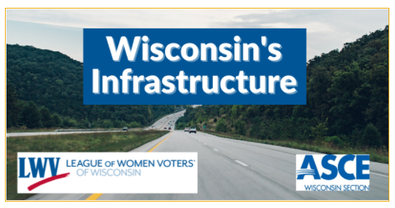 ASCE WI-LWVWI “Invest in Wisconsin’s Infrastructure” Overview and Category Series are now complete. You will find the links to video recordings of all programs below. Overview meeting links can also be found on the ASCE WI YouTube channel. Category meeting links can be found on the LWVWI website at this link. We encourage everyone to forward these program links to others, particularly your elected officials. Recordings: Overview Series
Category Series
LWV Upper Mississippi River Region, or UMRR (pronounced “Ummer”), is an interleague organization focused on water quality. UMRR is made up of 60 local Leagues in the states of Iowa, Illinois, Minnesota, and Wisconsin. Our geographic area is the Upper Mississippi River basin – that part of the Upper Mississippi basin upstream of the river’s confluence with the Ohio at the south edge of Illinois. Here’s a link to an UMRR blog post to learn more about what an ILO is and how it fits into the LWV national structure, and to learn more about how our structure strengthens our work, allowing the amplification of the voice of League throughout the watershed. Established in 2015, UMRR’s Board has strong representation from each of our four member states. Our Board members are listed on our Contact Us page– you may know some of us! The Board meets six times a year on the first Monday of even numbered months. In the pre-Covid days, we traveled around the basin for these meetings, which was a great way to get to know our members and the water issues in their communities. Now, everything is on the same schedule, but virtual. For each Board meeting, we also hold an educational session that focuses on a specific topic of concern. These educational sessions are open to the public and recorded videos are shared and posted. Upcoming educational sessions are planned on
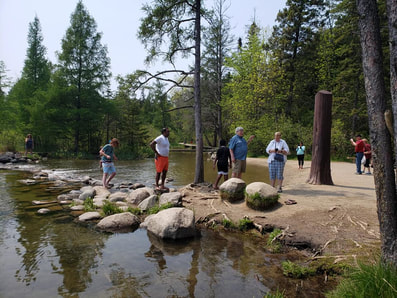 LWV UMRR Board members Mary and Steve Ploesser at the Headwaters, June 2019 LWV UMRR Board members Mary and Steve Ploesser at the Headwaters, June 2019 How to connect with LWV UMRR: LWV UMRR’s website has lots of information. Our Blog features 2-3 posts per month on topics that UMRR is working on. One recent post includes a link to video from our Feb 1 meeting, where we learned about watershed-scale work to reach people and promote soil health and water quality. Our “Upcoming Events” page includes posts for our upcoming meetings and maintains Board meeting information from past events. Here, those who are interested can see our Board agendas, meeting minutes, Treasurer reports, and Action Committee reports as well as see the topics that were included in the educational sessions. Almost every month, LWV UMRR puts out a newsletter that includes links to our Blog posts and other items of interest. You can sign up to receive the newsletter by submitting the info through our Contact Us page, or by emailing us at [email protected]. Leagues that are not already members can join UMRR through our Membership page, and anyone interested in making a donation can do so on our Donate page. |
|||||||||||||||||||||||||||||||
| LWV Upper Mississippi River Region | UMRR blog |
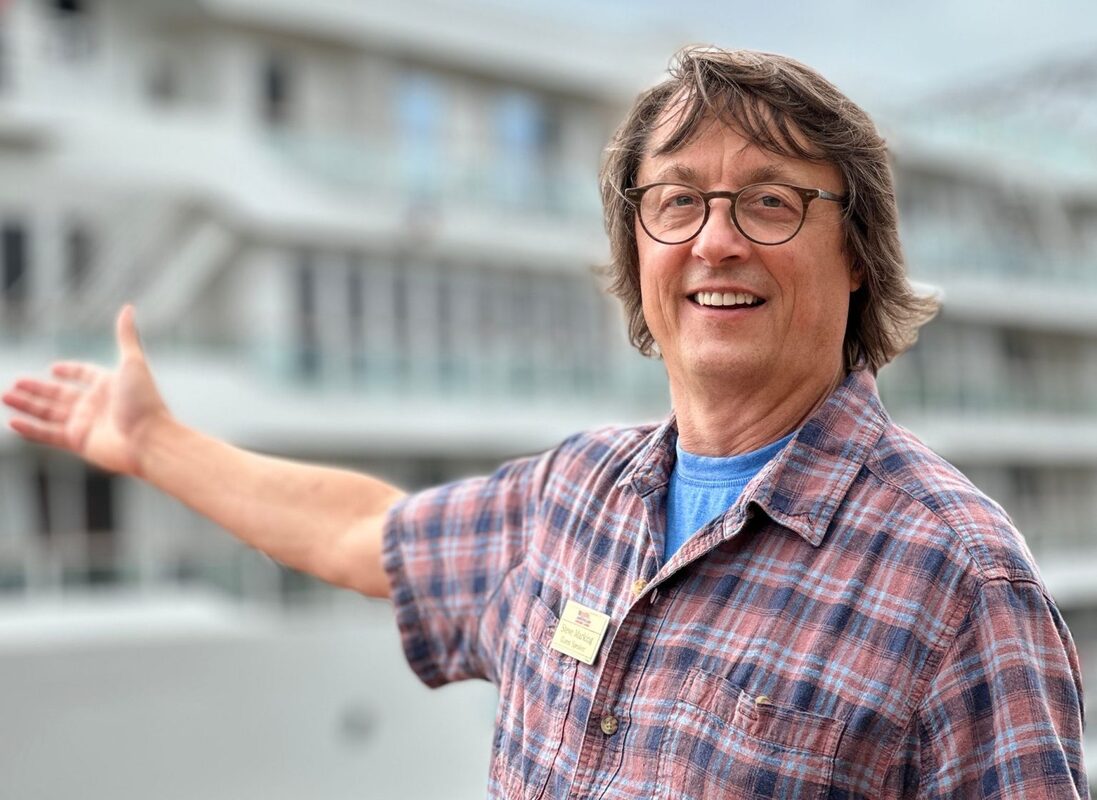
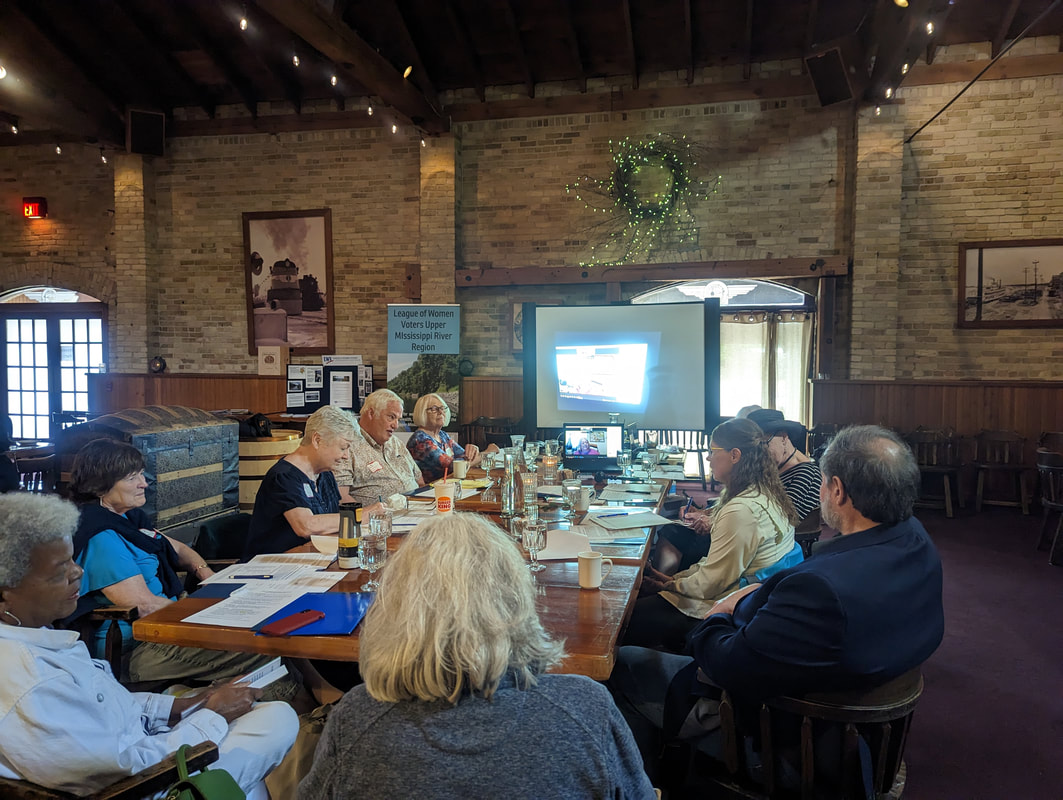
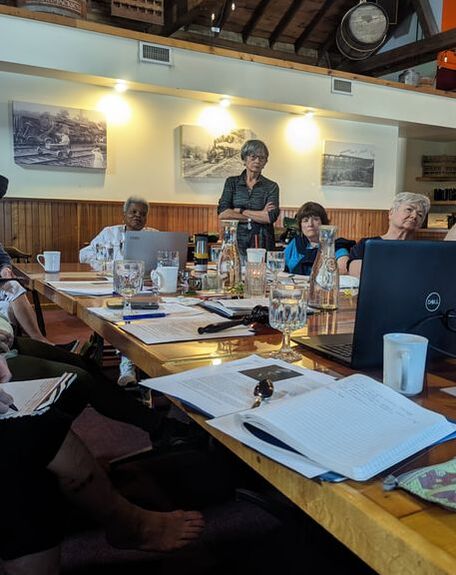
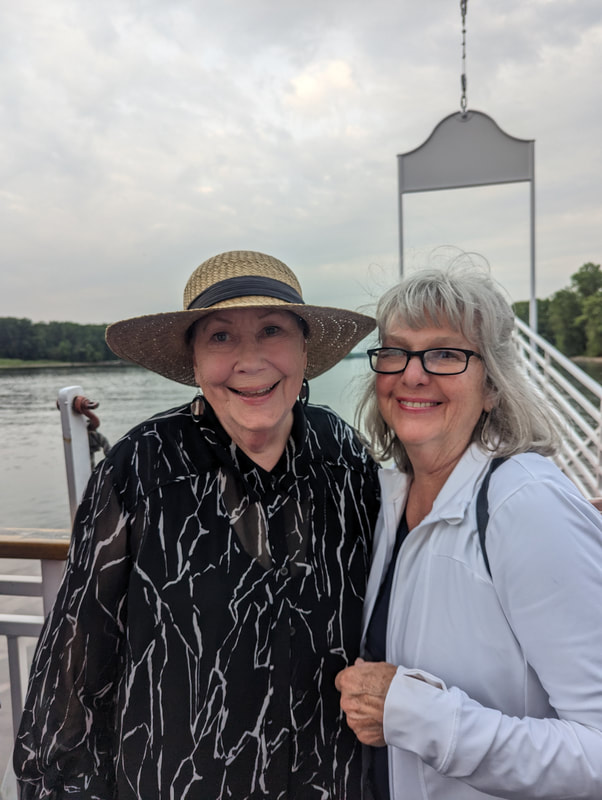
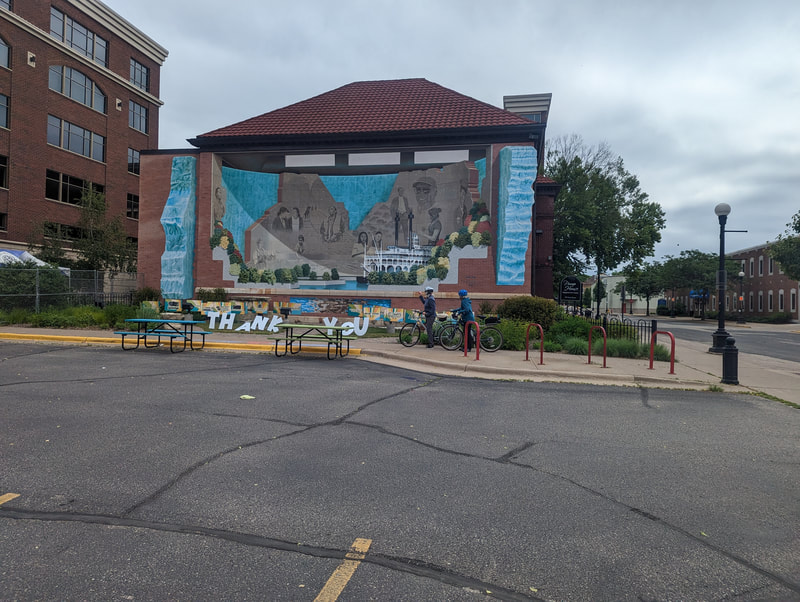
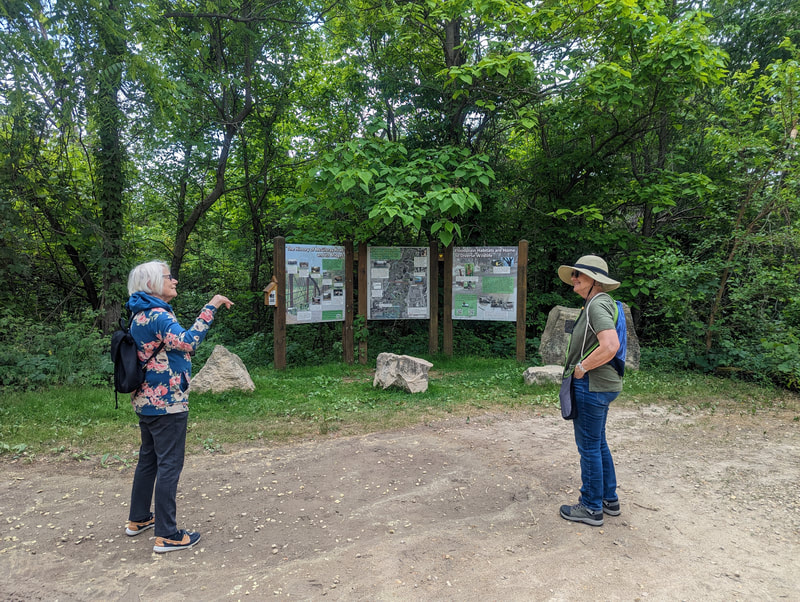
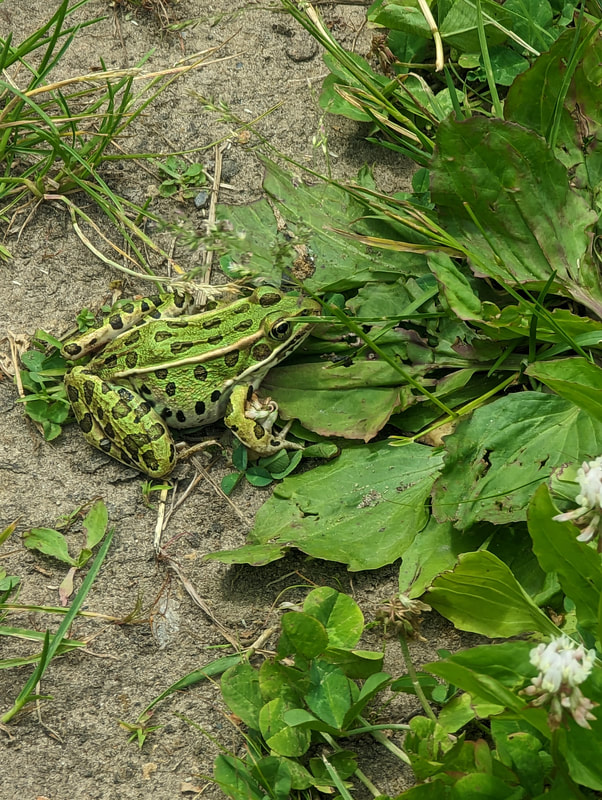
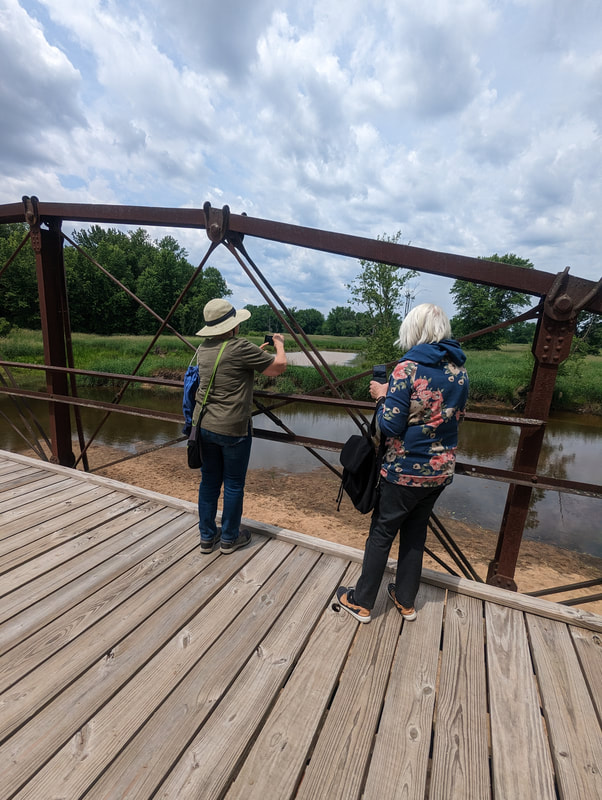
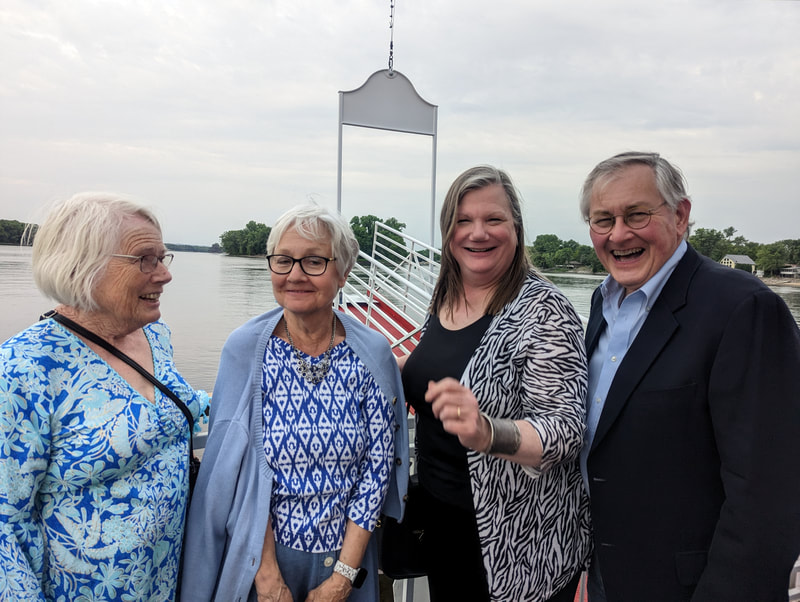
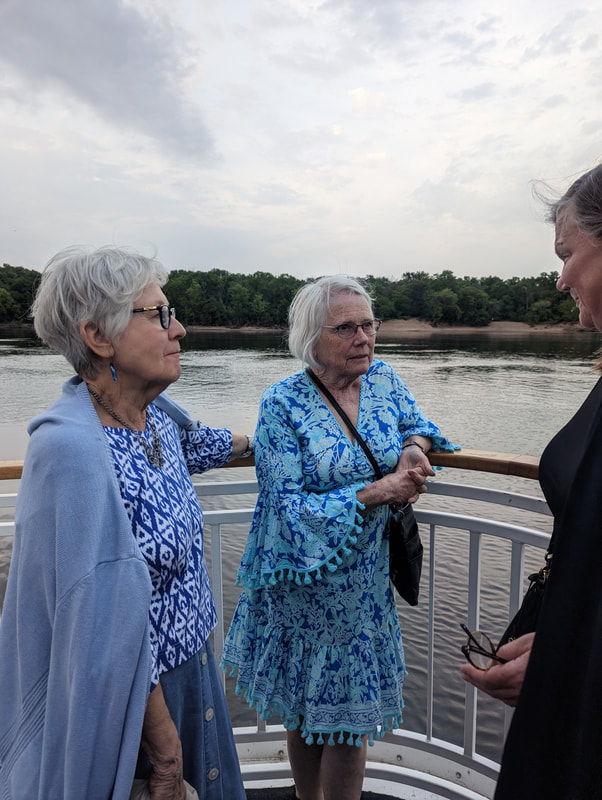
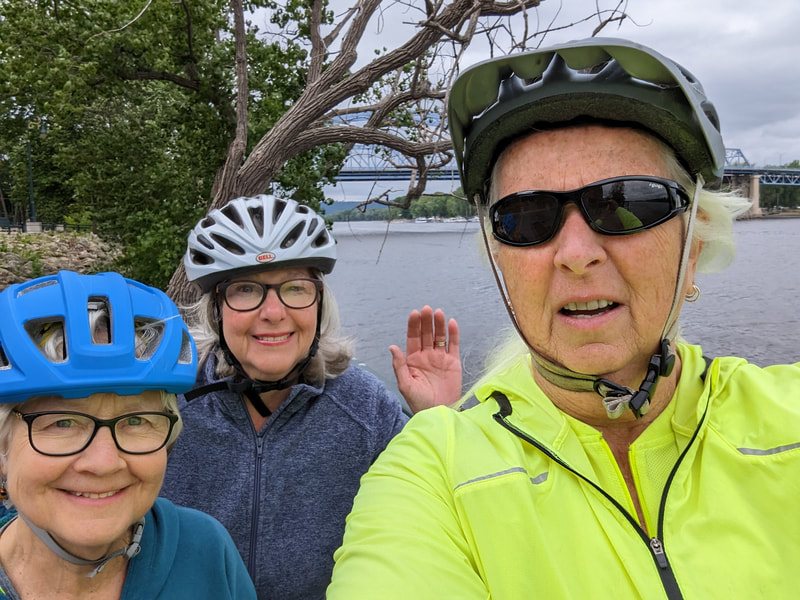
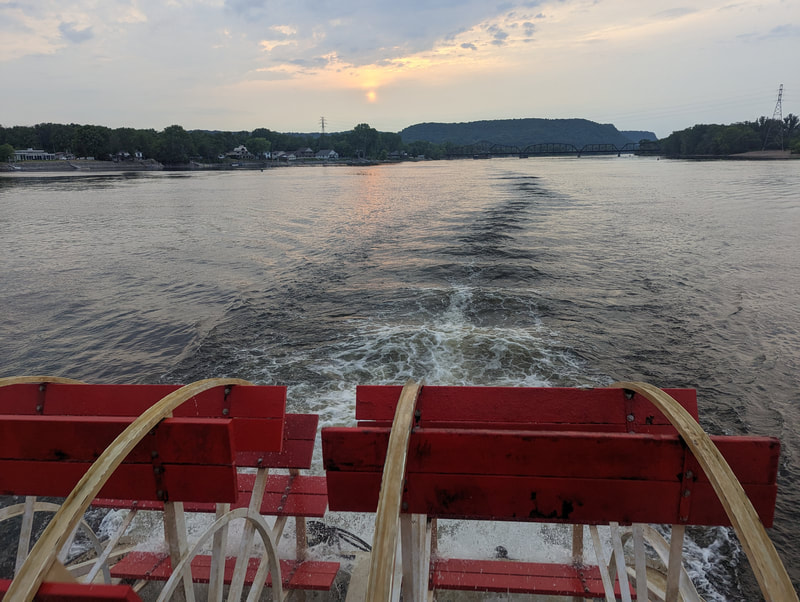
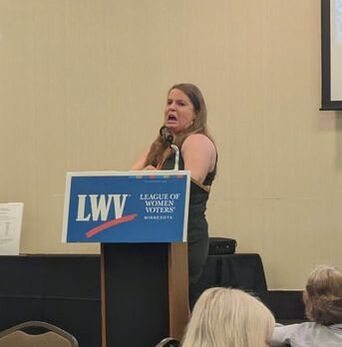
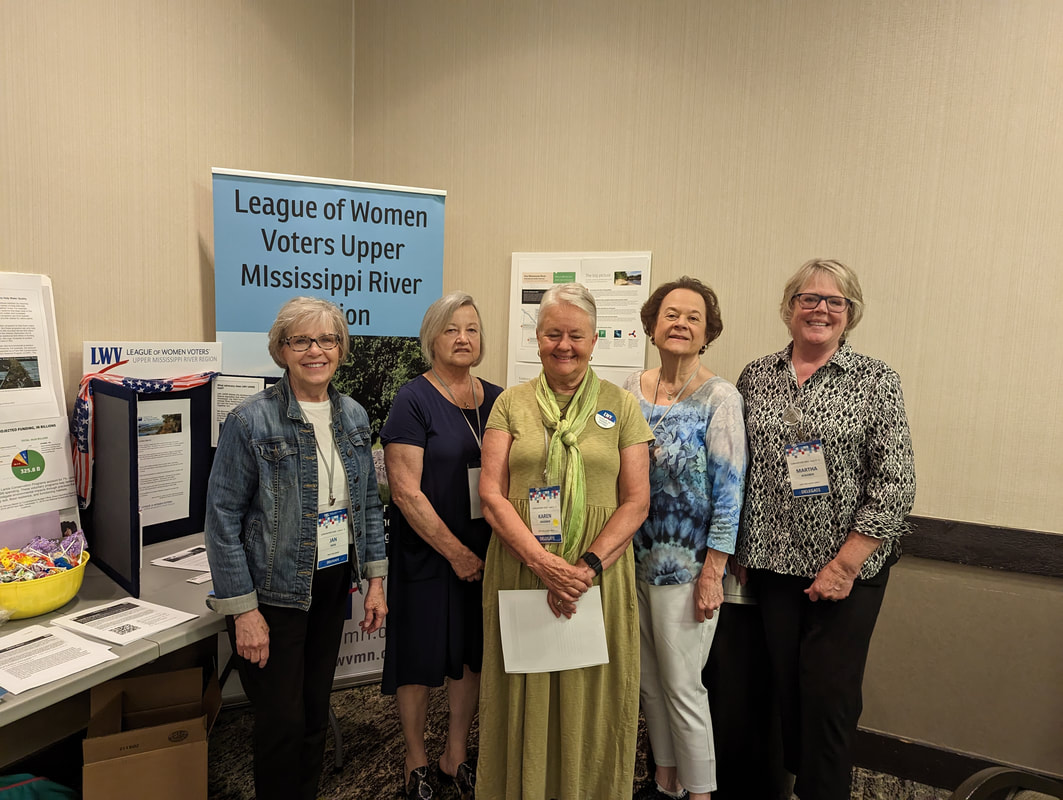
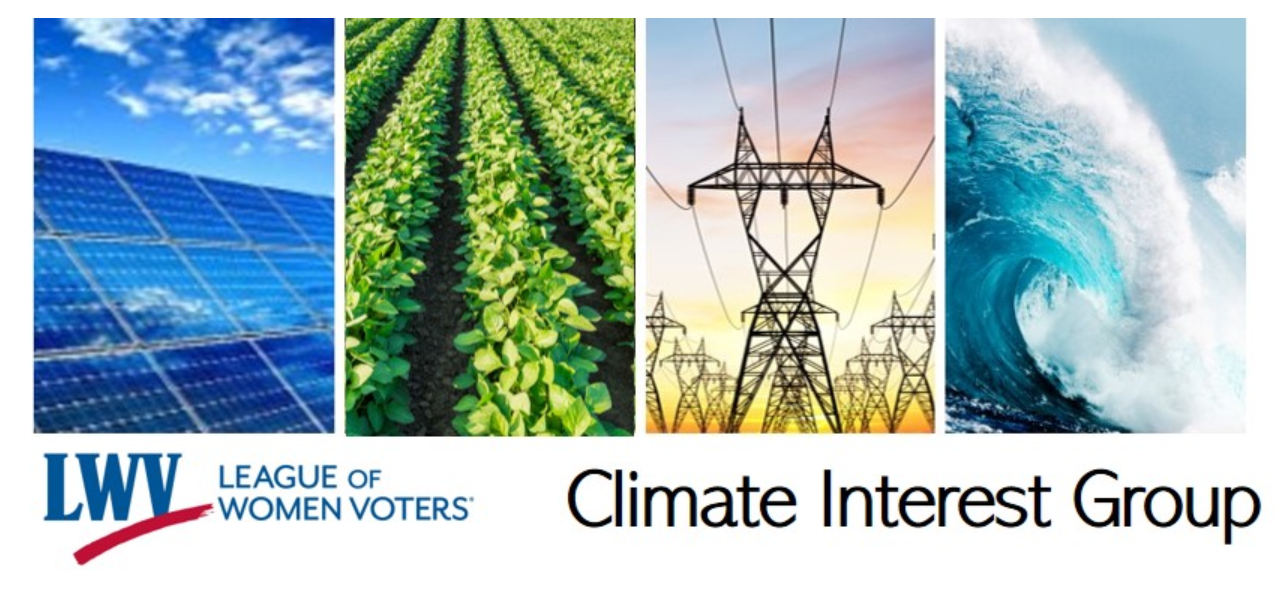
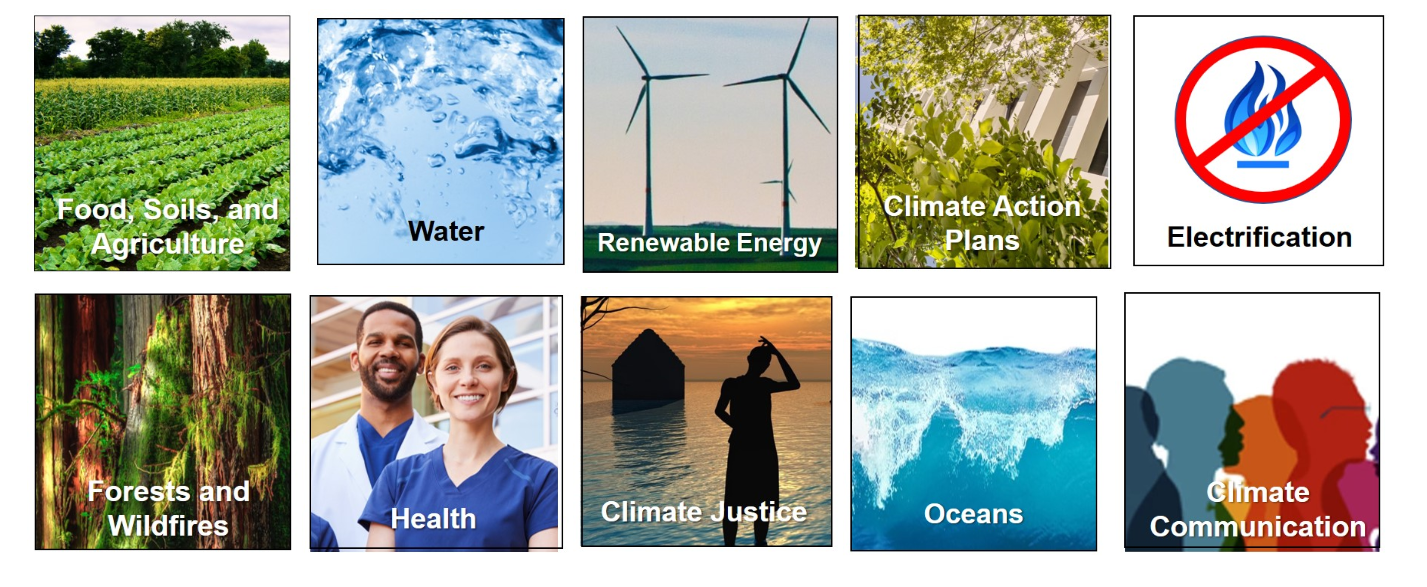

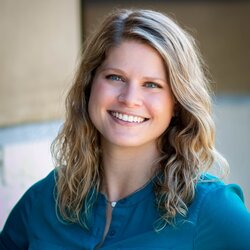
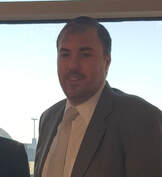
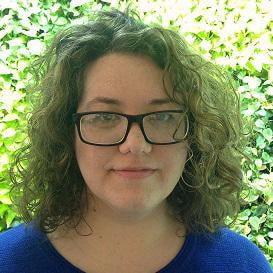
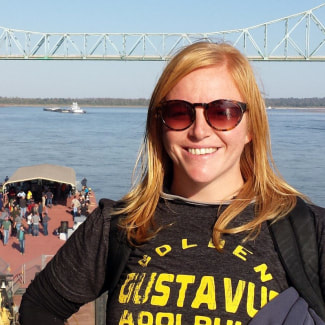
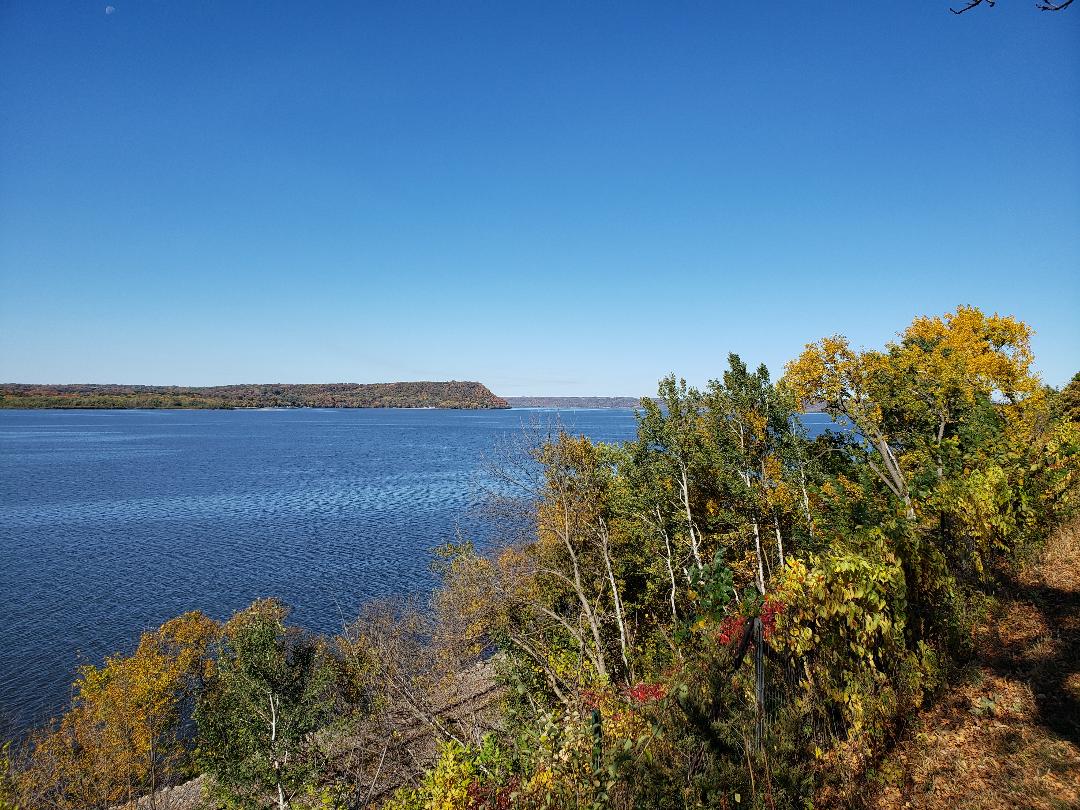
 RSS Feed
RSS Feed